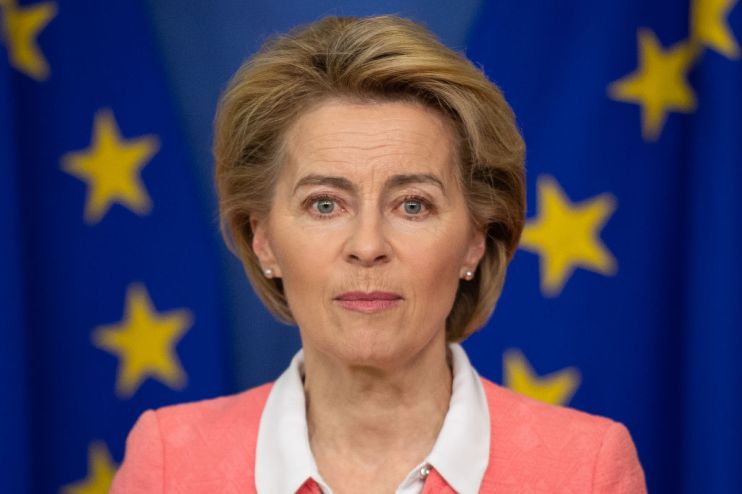EU hosts virtual summit on vaccine supply as scepticism blights Astrazeneca uptake

EU leaders will host a virtual summit this afternoon over its immunisation programme, as supply issues and false suspicions over the Astrazeneca jab continue to hamper vaccine uptake.
Countries across the continent are facing growing anger over the sluggish progress of the EU’s vaccine rollout, as the bloc continues to lag behind Britain.
European leaders are understood to be “looking to the European Commission for answers” amid demands for a show of “concrete progress in managing the pandemic”, Politico reported.
EU vaccinations
Around one in three Brits have received their first dose of either the Pfizer/Biontech or Astrazeneca jabs, with almost 19m doses administered in total.
In comparison, an average of just five per cent of EU residents have received their first dose of a coronavirus vaccine, according to the European Centre for Disease Prevention and Control’s Covid-19 Vaccine Tracker. The figure is as low as 4.9 per cent in France and 4.2 per cent in Italy.
EU officials have attempted to quell growing scepticism over the efficacy of the Astrazeneca vaccine amid concerns it is compromising the vaccine rollout across Europe.
Eleven out of 27 EU member states including France, Germany, Poland and Italy, have declined to give the jab to older people because of the lack of early clinical trial data supporting its efficacy in over-55s.
Germany has used around 200,000 out of 1.4m doses of the Astrazeneca jab delivered so far — equivalent to around 15 per cent of its current supply. A survey suggested half the German population would rather wait for a different vaccine than take the Cambridge-based drug.
But Ursula von der Leyen, the European Commission president, has hit back at the claims, telling the Augsburger Allgemeine in Bavaria that the vaccine was “just as safe as the products from Biontech/Pfizer or Moderna”.
“When we started looking for the most promising out of the hundreds of candidates 10 months ago, we assumed an effectiveness of between 50 and 70 per cent. Now everyone is on top of it. The vaccine has been carefully examined, found to be safe and effective, and approved,” she said.
Jens Spahn, the German health minister, added that he would gladly be injected with the Astrazeneca vaccine.
False reports
It comes after erroneous reports in various German media outlets last month claimed the vaccine was only eight per cent effective in over-65s.
German officials later U-turned on the figure, suggesting it had been a miscommunication from government ministers. But the headlines were enough to sow public mistrust in the vaccine across the continent.
French President Emmanuel Macron has faced mounting pressure to apologise after inaccurately stating the Astrazeneca jab was “quasi-ineffective” for older adults.
The World Health Organisation (WHO) has since recommended the vaccine for all age groups and slammed countries that have limited its rollout.
The French health ministry announced yesterday it would launch a public campaign to “rehabilitate” the vaccine’s “image deficit”, after figures showed just 107,000 people have been immunised with the Astrazeneca jab so far.
Meanwhile, thousands of Italian doctors have called on Rome to stop using the Astrazeneca vaccine, and demanded that “private doctors and dentists be inoculated with mRNA vaccines” such as those developed by Pfizer and Moderna.
Vaccine shortages
Astrazeneca claims it has been made a scapegoat for vaccine shortages across the bloc, and has insisted its jab is effective in preventing severe disease among older populations.
The EU has been hit by major supply issues, with various vaccine companies saying they will be unable to fulfil contractual obligations with the bloc while they scale up manufacturing facilities.
Pfizer has not yet delivered around 10m doses that were due in December, leaving the bloc around a third short of agreed doses.
On Tuesday, Astrazeneca denied reports it would deliver fewer than half of the Covid-19 vaccines it was contracted to supply in the second quarter.
A spokesperson for AstraZeneca said its most recent forecast “aims to deliver in line with its contract with the European Commission”.
Astrazeneca’s contract with the EU, which was leaked earlier this month, showed the company had committed to delivering 180m doses to the EU in the second quarter.